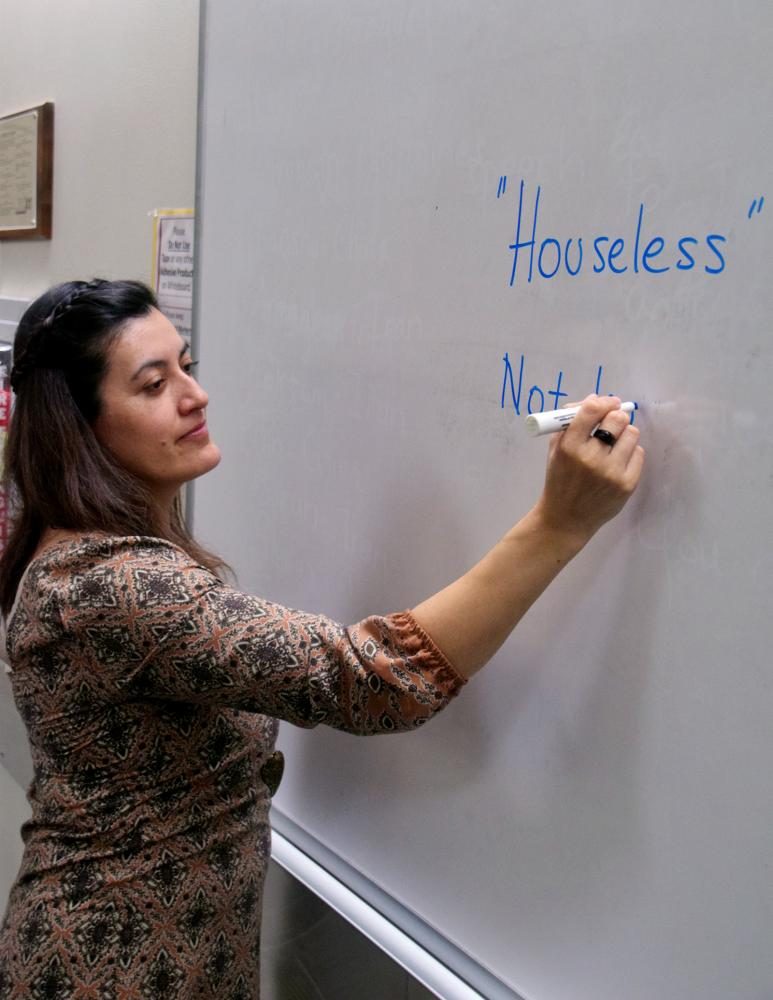‘Houseless, not homeless’
A researcher highlighted issues of homeless around the community
JORDAN MAXWELL | The Daily Evergreen
Workshop leader Nancy Carvajal Medina leads a discussion about helping homeless on the Palouse Monday evening at Neill Public Library.
August 30, 2017
Several local organizations and a WSU researcher have come together to educate the public on the homelessness epidemic, which is migrating from cities to smaller places like Pullman.
The Neill Public Library recently hosted an event that combined research and personal stories of homelessness on the Palouse, organized by Director Joanna Bailey and Nancy Carvajal Medina, a doctoral candidate in cultural studies and social thought in education. Bailey said some homeless people use the library as a resource.
“The library has seen an increase of homeless patrons,” she said. “Some come to sleep, while others come to break that cycle [of homelessness].”
Carvajal Medina said her thesis focuses on critical ethnographic study of the homeless identity through gathering testimonials from around the Palouse. She played two, which she recorded during her research of local people who struggled with homelessness.
The first, from a woman who had been homeless for five years, recalled being harassed and having to prostitute herself. The other, from a man who said he was living under bridges, explained that homeless affects not just homeless people, but all those around them.
Locally, homelessness is a significant problem, Bailey said. She said the poverty rate in Whitman County is 16.7 percent, higher than the statewide rate of just over 14 percent and the national rate of 14.5 percent.
According to a 2016 study by the League of Women Voters of Pullman, adults ages 19 to 54 make up about 36 percent of food pantry users.
Barbara Mays, family services manager of the Community Action Center in Pullman, said they recently served 79 individuals, 11 of whom were in danger of losing their housing accommodations close to campus.
Representatives from shelters like Sojourner’s Alliance and the Community Action Center said they are trying their best to keep up with the growing homeless population in the area.
Soujourner’s Alliance, located in Moscow, was one of eight shelters or resource centers at risk of closing due to changes in federal funding.
Steve Bonnar, director of Soujourner’s Alliance, told The Spokesman-Review in May of last year that the shelter was given 28 days to find 31 people a permanent living space.
Thanks to community member intervention, they were able to raise $25,000 and stay open. Many other homeless shelters and resource centers around the country are facing similar issues after recent federal budget cuts.
Carvajal Medina said one of the biggest issues for people in the Palouse and around the country is the stigma around homelessness.
“When you hear the word homeless, you usually hear the word criminal, drug addict, the one who represents a threat to society,” she said. “So then when working with those who have housing instability, they proposed the term houseless instead of homeless … because the house is the physical space, but home is within your heart.”










